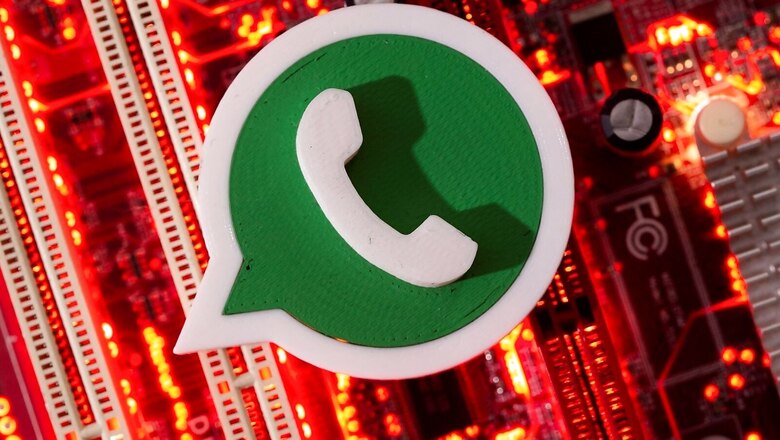
views
Meta-owned messaging application WhatsApp has shared a series of key points that could help its users in Ukraine and throughout the world to secure and defend their privacy during the concerning conflict between Russia and Ukraine.
“Our thoughts are with everyone affected by the war in Ukraine. Here is some important information on how to protect and safeguard your privacy for our users in Ukraine and around the world,” it wrote on Twitter.
“As always, your personal messages and calls are protected with end-to-end encryption by default so they cannot be intercepted by any government,” the Twitter thread added.
This comes after Russia launched a “special military operation” into Ukraine, with attacks coming from numerous directions and aimed at multiple cities.
Since then, Russian troops have seized territory and are advancing on important towns such as Kyiv, the Ukrainian capital. Meanwhile, cyberwar between both countries has already begun.
WhatsApp’s parent company Meta Platforms in a statement said that it has established a special operations centre staffed by experts from across the company, including native Russian and Ukrainian speakers, who are monitoring the platform around the clock, allowing the company to respond to issues in real-time.
“We’ve added several safety features in Ukraine, including the ability for people to lock their Facebook profile, removing the ability to view and search friends lists, and additional tools on Messenger,” Meta added.
According to the company, it is taking several actions to combat the propagation of misinformation, including growing third-party fact-checking capacity in Russian and Ukrainian, increasing transparency surrounding state-controlled media sites, banning ads from Russian state media, and demonetising their accounts.
WhatsApp said: “We strongly recommend everyone enable two-step verification to protect against hackers that could try to lock you out of your account. You can also turn on the fingerprint lock. When this is enabled, you’ll have to use your fingerprint to access the app.”
“As a reminder, we have limits on message forwarding and we label messages that haven’t originated with the sender, so people are aware that something is information from a third party,” it added.
Meanwhile, Meta said that while working with third-party fact-checkers, the company is also taking initiatives to remove content that violates its policies.
“When they rate something as false, we move this content lower in Feed so fewer people see it,” it added.
Meta also noted that “we have expanded our third-party fact-checking capacity in Russian and Ukrainian languages across the region and are working to provide additional financial support to Ukrainian fact-checking partners”.
In addition to labels from Meta’s fact-checking partners, the company is warning users in the region when they attempt to share some war-related images that company’s systems detect are more than a year old, so people have more information about outdated or misleading images that could be taken out of context.
Additionally, as per Meta, it has made it easier for fact-checkers to access and grade articles about the war as it understands the value of breaking news events. In addition, the company said that it also employs “keyword detection” to collect relevant content in one place, making fact-checkers jobs easier.
According to the company: “We’re also giving people more information to decide what to read, trust and share by adding warning labels on content rated false by third-party fact-checkers and applying labels to state-controlled media publishers.”
“We remain vigilant to emerging trends and stand ready to take additional action to meet the demands of this ongoing conflict,” it concluded.
Read all the Latest Tech News and Breaking News here


















Comments
0 comment